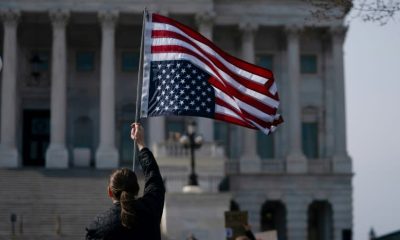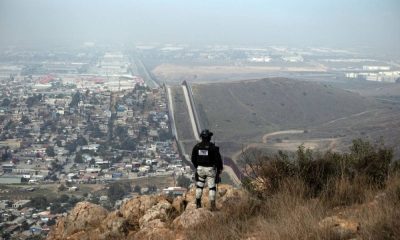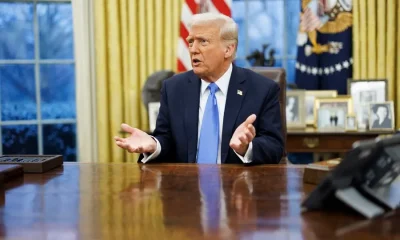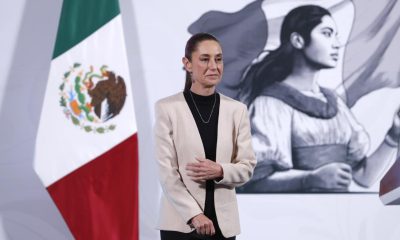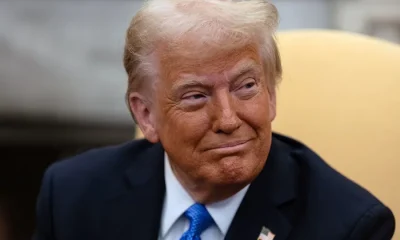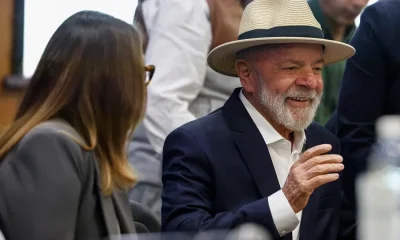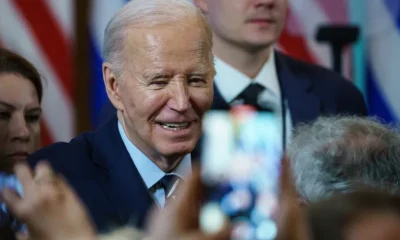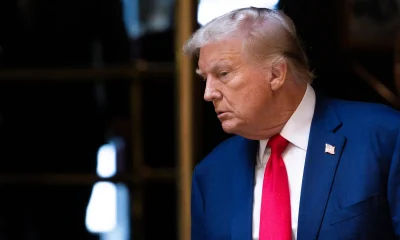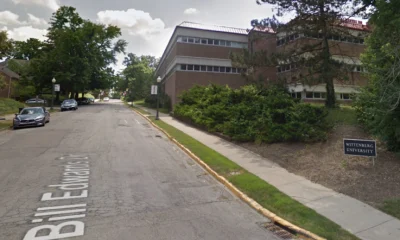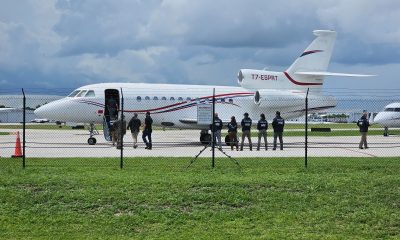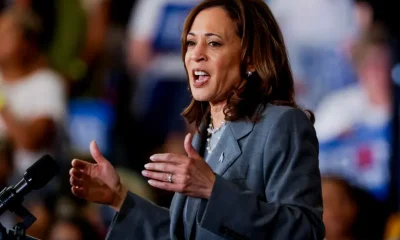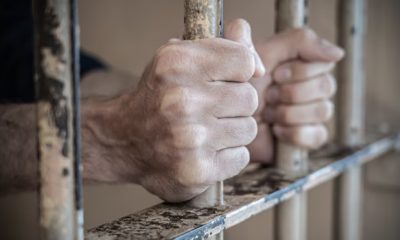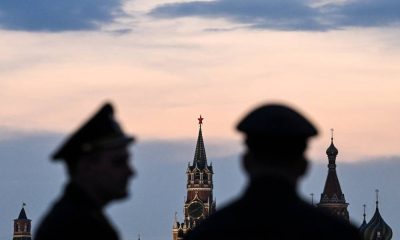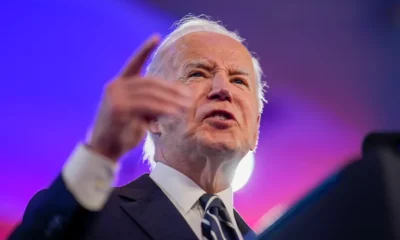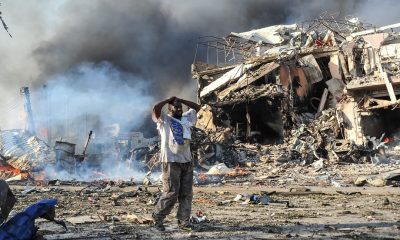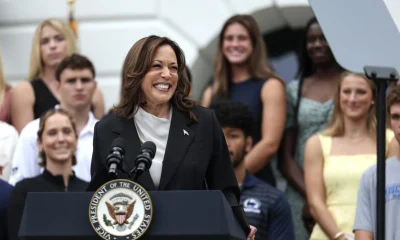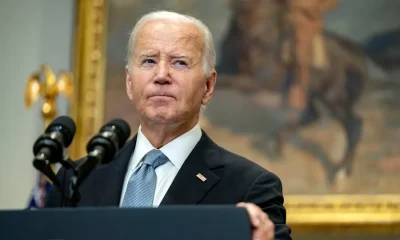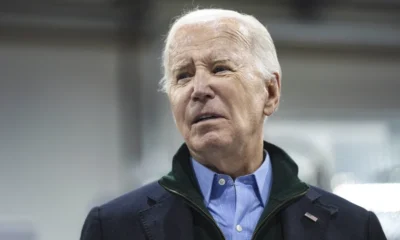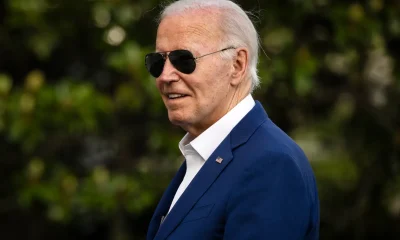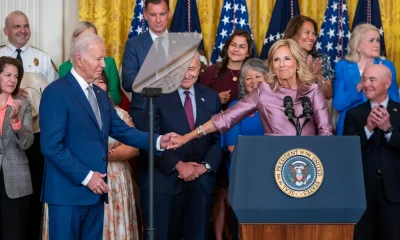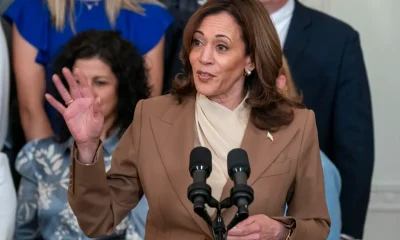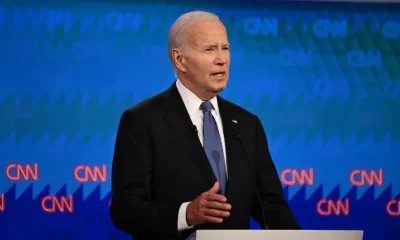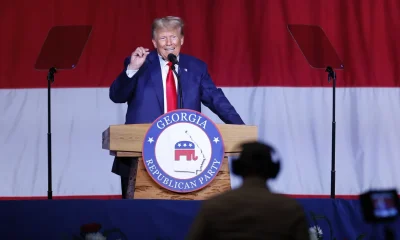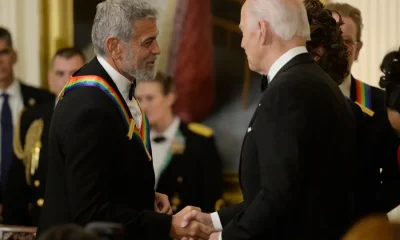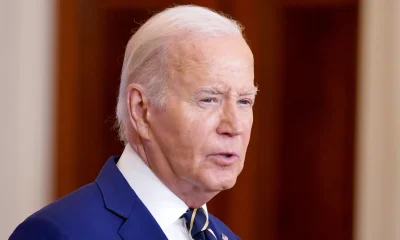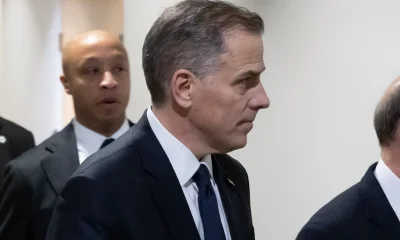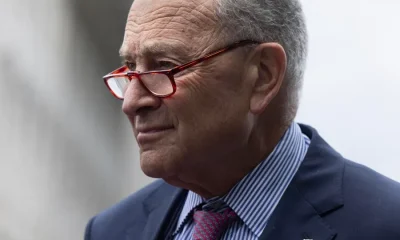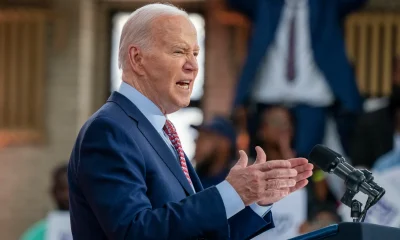International
Biden in Mexico for talks on migrants, drugs
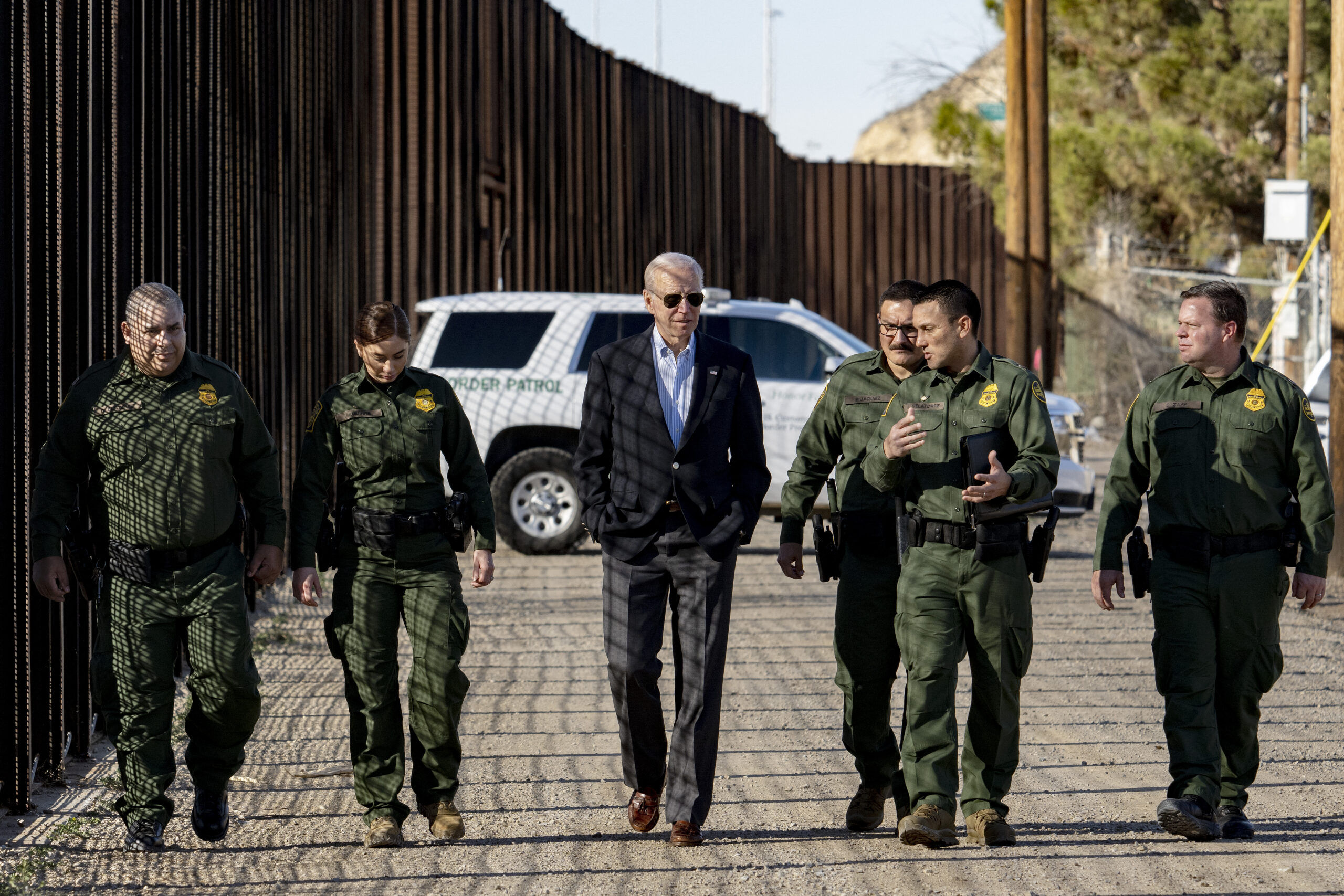
January 9th | By AFP | Daniel Rook |
A regional migration and drug smuggling crisis is expected to dominate talks between US President Joe Biden and his Mexican counterpart Andres Manuel Lopez Obrador on Monday.
Biden arrived in Mexico City late Sunday after a politically charged stop at the southern US border — his first since taking office.
He will meet Monday and Tuesday with Lopez Obrador and Canadian Prime Minister Justin Trudeau one-on-one and also together in what is dubbed the “Three Amigos” summit.
While trade and environmental issues are also on the table, Biden has put a surge in irregular migration and dangerous drug trafficking front and center of his trip, his first to Mexico as president.
“Our problems at the border didn’t arise overnight,” Biden tweeted after his arrival.
“And they won’t be solved overnight. But, we can come together to fix this broken system. We can secure the border and fix the immigration process to be orderly, fair, safe, and humane.”
Lopez Obrador, who joined Biden in his armored limousine for the journey from the airport, called for increased investment in the region so that people are less likely to flee their countries.
“Opportunities must be guaranteed to citizens, to workers of all countries in their places of origin,” he told reporters.
‘Where are our rights?’
On his way to Mexico, Biden stopped for several hours in El Paso, Texas, a city at the heart of the troubled border.
He met with US officials at the Bridge of the Americas crossing, watching a demonstration of the latest border enforcement technology, as well as a customs sniffer dog.
He later got out of his motorcade to inspect a section of the tall fencing that snakes between El Paso and its twin city Juarez on the Mexican side.
“They need a lot of resources. We’re going to get it for them,” Biden told reporters after his visit to the customs post.
Just ahead of Biden’s arrival in Mexico, a line of migrants, some with children in their arms, were deported from El Paso to Ciudad Juarez, according to an AFP reporter at the scene.
Venezuelan Jose David Melendez told AFP that he had been apprehended by border guards at a church where he was taking refuge.
“The police officers from the border patrol came and hit us, made us run, pointed guns at us, pointed at children with firearms. Where are our human rights?” the 25-year-old said.
Biden is under political pressure in the face of spiraling illegal border crossings and applications for asylum.
Adding to the crisis has been a surge in cross-border smuggling of the highly addictive and often deadly narcotic fentanyl.
Biden’s visit sought to respond to Republican accusations that he has been ignoring the situation.
On Thursday Biden announced an expansion of powers to expel people showing up at the border without clearance.
At the same time, a legal, strictly enforced pathway will be created for up to 30,000 migrants a month from Cuba, Haiti, Nicaragua and Venezuela.
The quota will be restricted to those who already have a US sponsor, while anyone attempting to cross the border illegally will be expelled in coordination with Mexico.
Human rights groups harshly criticized this as closing the door on desperate people, but the Biden administration says its actions will essentially kill the market for human smuggling networks, while encouraging legitimate arrivals.
Cartel violence
In 2021, the United States and Mexico announced a revamp of their fight against drug trafficking to address the root causes of migration, encourage economic development and bolster curbs against cross-border arms smuggling.
Mexico is plagued by cartel-related bloodshed that has seen more than 340,000 people murdered since the government deployed the military in the war on drugs in 2006.
Days before Biden’s visit, Mexican security forces captured a son of notorious drug kingpin Joaquin “El Chapo” Guzman, who is serving a life sentence at a US prison.
The United States had offered a reward of up to $5 million for information leading to Ovidio Guzman’s arrest, accusing him of being a key player in the Sinaloa cartel founded by his father.
Climate change and cooperation in clean energy technologies will also be on the summit agenda, with Mexico hoping to benefit from Washington’s efforts to reduce its reliance on Asia-based manufacturers.
International
Spain’s irregular migrant population rises to 840,000, study finds
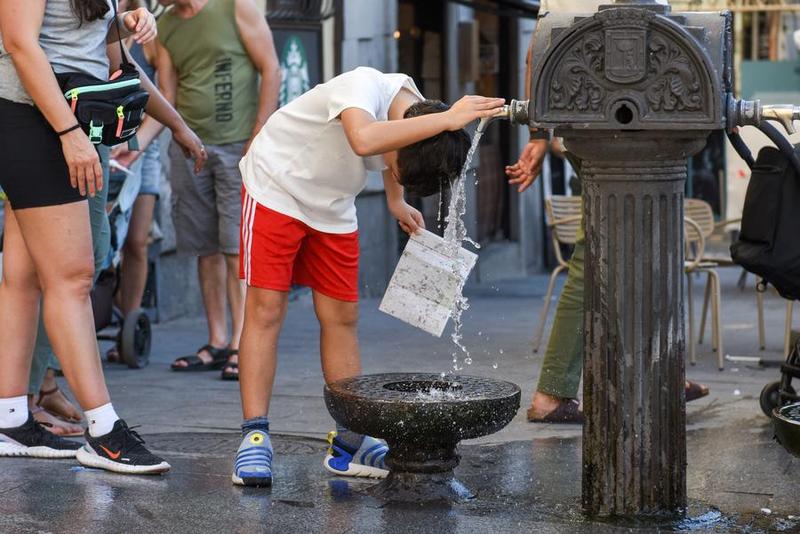
The number of migrants living in Spain without legal residency status continues to rise and has reached 840,000 people, with 91% originating from the Americas, particularly Colombia, Peru and Honduras, according to a report by the Spanish think tank Funcas (Foundation of the Savings Banks).
An estimated 17.2% of the non-EU foreign population living in Spain is in an irregular administrative situation. The estimate is based on the gap between the number of foreign residents effectively living in Spain, according to the National Statistics Institute (INE), and those who hold a residence permit, benefit from international protection, or are in the process of obtaining it.
The data, as of January 1, 2025, point to a notable and sustained increase in irregular migration since 2017, when the estimated figure stood at around 107,000 people, representing 4.2% of the non-EU population residing in Spain.
By origin, migrants from the American continent stand out, totaling around 760,000 people, or 91% of all irregular migrants. Colombians account for nearly 290,000, followed by Peruvians with almost 110,000, and Hondurans with about 90,000. Migrants from Africa (50,000), Asia (15,000) and Europe (14,000) trail far behind.
The figures predate Spain’s latest immigration regulation reform, which came into force in May 2025 and introduces measures to ease access to legal status through residency ties. According to Funcas, the reform would, in principle, tend to reduce the number of migrants in an irregular situation.
International
Historic snowstorm paralyzes Toronto after 60 centimeters of snow

Toronto, Canada’s largest city and the fourth most populous in North America, was largely paralyzed on Monday after a historic snowstorm dumped up to 60 centimeters of snow and sent temperatures plunging to -15 degrees Celsius, authorities said.
Late Sunday, as the scale of the snowfall became clear, city officials declared a climate emergency, triggering extraordinary measures including parking bans on several major streets to facilitate snow removal operations.
Toronto’s public transit authority reported that while some buses remain immobilized, subway and streetcar services are operating with relative normality, though localized disruptions may occur.
A similar situation is affecting the city’s commuter rail network, which remains operational but is experiencing significant delays on its main routes due to the severe weather conditions.
International
Venezuela frees at least 80 political prisoners, NGO says
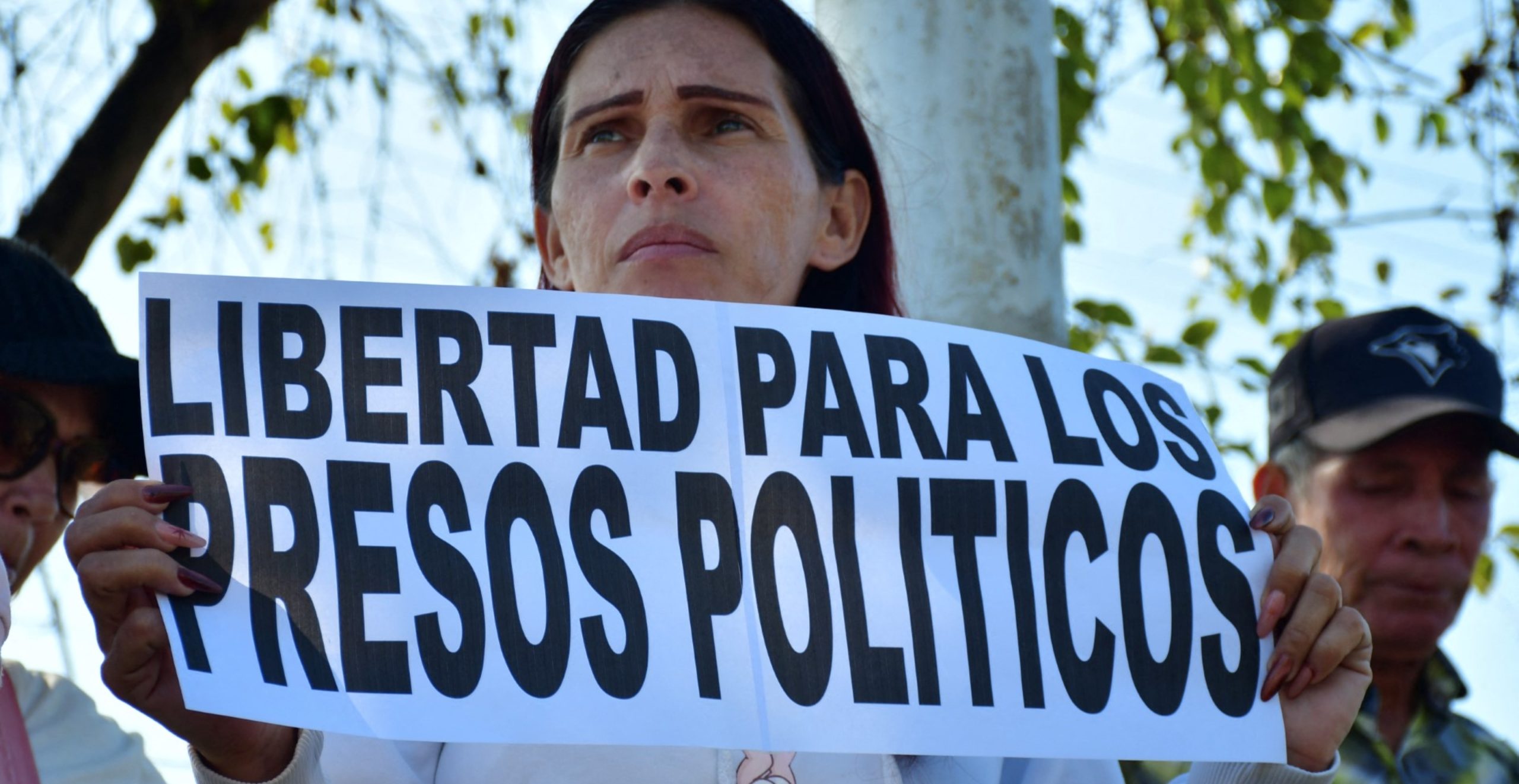
At least 80 political prisoners were released on Sunday across Venezuela, human rights group Foro Penal reported, as the broader process of detainee releases continues at a slow pace under the interim government.
Foro Penal’s director, Alfredo Romero, wrote on social media platform X that verified releases took place nationwide and that the figure could rise as more confirmations are completed.
Attorney Gonzalo Himiob, also from Foro Penal, said the excarcelations occurred during the early hours of the day and emphasized that the number is not yet final pending further verification.
The releases are part of a series of steps announced by Venezuela’s interim leader, Delcy Rodríguez, who took power after the capture of former President Nicolás Maduro in a U.S. military operation on Jan. 3, 2026. Rodríguez has pledged a significant number of liberations but has been criticized by opposition groups and rights organizations for the slow and nontransparent nature of the process.
So far, the Venezuelan government reports that 626 detainees have been freed since December, though independent counts by human rights groups suggest the number of actual political prisoner releases is lower and that many remain behind bars.
Families of those still detained have maintained vigils outside prisons, hopeful for further releases even as broader concerns about political imprisonment and due process persist.
-

 Central America5 days ago
Central America5 days agoMazatenango Carnival cancelled amid State of Siege in Guatemala
-

 International5 days ago
International5 days agoTrump to invite Venezuela’s interim president Delcy Rodríguez to Washington
-

 International5 days ago
International5 days agoMarkets rise as Trump halts Europe tariffs and floats Greenland agreement framework
-

 International5 days ago
International5 days agoVenezuela’s interim president predicts 37% increase in revenues for 2026
-

 International3 days ago
International3 days agoTrump-Era Defense Plan Prioritizes Border Security and Scales Back Global Commitments
-

 Central America3 days ago
Central America3 days agoGuatemala’s president rules out negotiations with inmates after prison riots
-

 Internacionales3 days ago
Internacionales3 days agoMajor winter storm threatens “catastrophic” ice and snow across much of the U.S.
-

 International5 days ago
International5 days agoJapan reopens Kashiwazaki-Kariwa Plant despite public concerns
-

 International5 days ago
International5 days agoFour minors killed in deadly clash between FARC dissidents in Colombia’s Amazon
-

 International3 days ago
International3 days agoBogotá and Quito Seek Dialogue After Tariffs and Power Cut Escalate Tensions
-

 International3 days ago
International3 days agoGuatemala considers sending high-risk gang members to military prisons
-

 International2 days ago
International2 days agoDelcy Rodríguez seeks political agreements after Maduro’s ouster
-

 International2 days ago
International2 days agoFederal immigration agents kill man in Minneapolis, sparking protests and outrage
-

 International3 days ago
International3 days agoRights group says over 5,000 killed in Iran protests, mostly civilians
-

 International15 hours ago
International15 hours agoHistoric snowstorm paralyzes Toronto after 60 centimeters of snow
-

 International15 hours ago
International15 hours agoRights group says nearly 6,000 killed in Iran protest crackdown
-

 Central America15 hours ago
Central America15 hours agoGuatemala seizes over a ton of cocaine hidden in flour at Pacific port
-

 International15 hours ago
International15 hours agoSpain’s irregular migrant population rises to 840,000, study finds
-

 International15 hours ago
International15 hours agoVenezuela frees at least 80 political prisoners, NGO says
-

 International15 hours ago
International15 hours agoEU launches new probe into X over AI-generated fake nude images
-

 International16 hours ago
International16 hours agoFrance debates ban on social media for children under 15
-

 International16 hours ago
International16 hours agoSevere winter storm grips U.S., leaves multiple dead as extreme cold persists



























